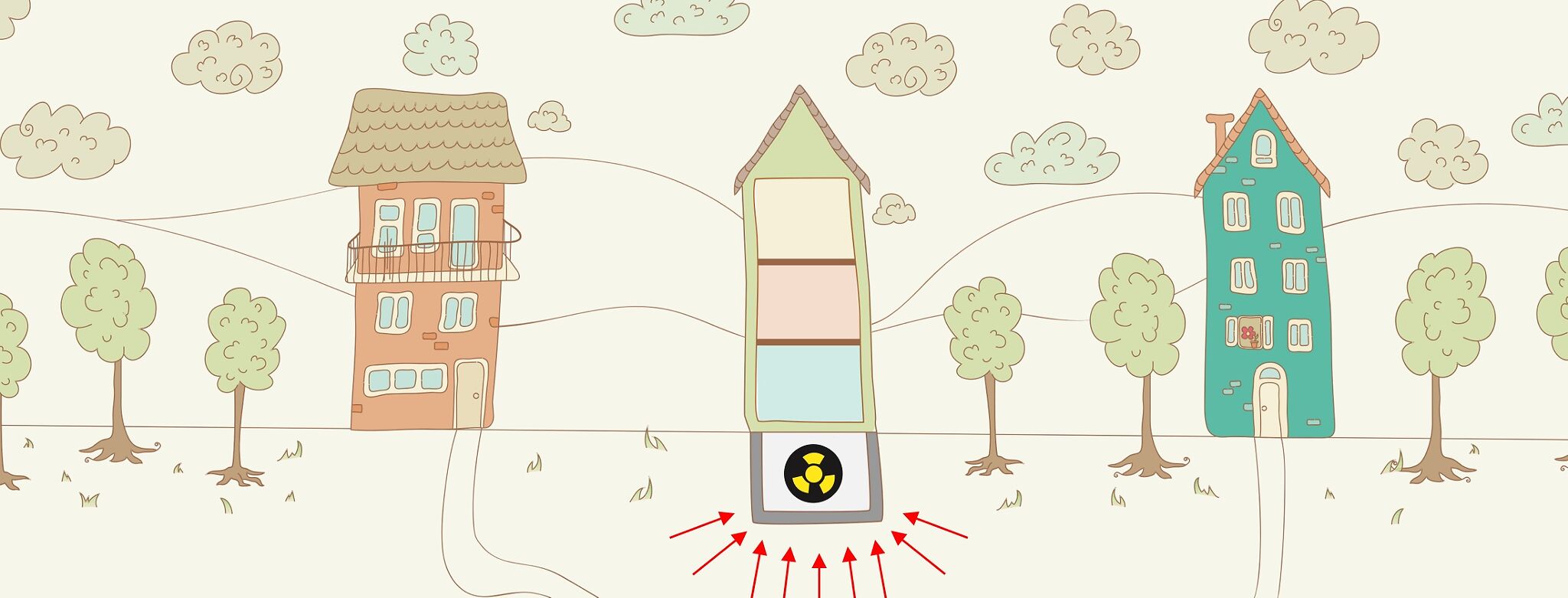Did Radon Cause Your Lung Cancer?
Radon is a deadly radioactive gas that causes lung cancer. It is odorless, colorless and invisible. Just because we cannot see or smell radon does not mean it is harmless. According to the Environmental Protection Agency (EPA), each year more than 20,000 Americans die from radon-induced lung cancer. Despite these high numbers, the public knows surprisingly little about radon.1,2
What should I know about this radioactive gas and why?
Radon and helium are in the same group of chemical elements known as “noble gases.” Anyone who has held one knows that a helium-filled balloon floats, because helium is lighter than air. Radon, however, is heavier than air.2
Radon is the second leading cause of lung cancer. And, in patients who never smoked, radon exposure is the number one cause of lung cancer. There should be no mystery about radon. When it comes to radon, indeed, knowledge is life-saving power.2
Testing your home for radon
The EPA recommends every home be tested for radon. How much more important is radon testing for people diagnosed with lung cancer? An estimated one out of 15 homes tests high for radon. There is every reason to test and no reason not to test. Testing is easy and inexpensive. The EPA has classified the radon potential in every county across the country as low risk (yellow), moderate risk (orange) or high risk (red). To discover the radon risk for your county, go to the U.S. Radon Map.1
Short-term radon test kits are sold at home improvement stores and online for approximately $15. Instructions with the kit provide more details, but basically, it takes between three and five days to conduct the test. The test should be done in the lowest livable level of the home. For example, I have an unfinished basement in my home. So even though the basement is the lowest level in my home, because it is “unlivable,” I don’t test in the basement. I place the test on the first floor.
What happens if high radon levels are detected?
A radon test kit is a postage-paid, self-mailer. After conducting the test, simply mail the kit to the lab. The lab will send you a confidential lab report informing you about the radon level and providing guidelines for next steps. Other than sending your lab report, no one will try to contact or sell you anything.
However, IF your test shows a high level of radon in your home, do not panic. Fixing or mitigating your home costs less than most home improvement projects. Compared to other environmental hazards in the home, such as mold or lead, radon mitigation is quick and relatively inexpensive.1
Hiring a certified professional for radon mitigation
Consider hiring a certified radon mitigator to mitigate your home. The EPA has a list of certified mitigators. Using PVC piping and an electric ventilation fan, mitigators funnel the radioactive so that it bypasses the home and is dispersed into the atmosphere where it is harmless. As with any project, you may want to get a couple of estimates. The average cost of mitigating a home ranges between $800 to $1,500, which is much less than the cost of cancer treatment.1
Radon exposure and your lung cancer diagnosis
Unfortunately, there is no way to scientifically determine whether or not a particular case of lung cancer was caused by radon exposure or other factors. It is difficult to nail down, especially in today's society when so many people move from house to house and city to city. However, many people not considered at risk for lung cancer were diagnosed with the disease. They were unaware of radon until their diagnosis. Then, and only then, did they learn that radon is the number two cause of lung cancer. After the fact, they tested their home and found it to have a high level of radon.
Others can only wonder if the home they lived in years ago contributed to their lung cancer. I went back to one house in particular that I suspected may have had high radon and gave a radon test kit to the new occupant. If you suspect you may have been exposed to radon at a house you no longer live in, consider contacting the new occupant and sharing this information about testing for radon.
Where can I learn more?
For more information about radon, visit the websites below:

Join the conversation